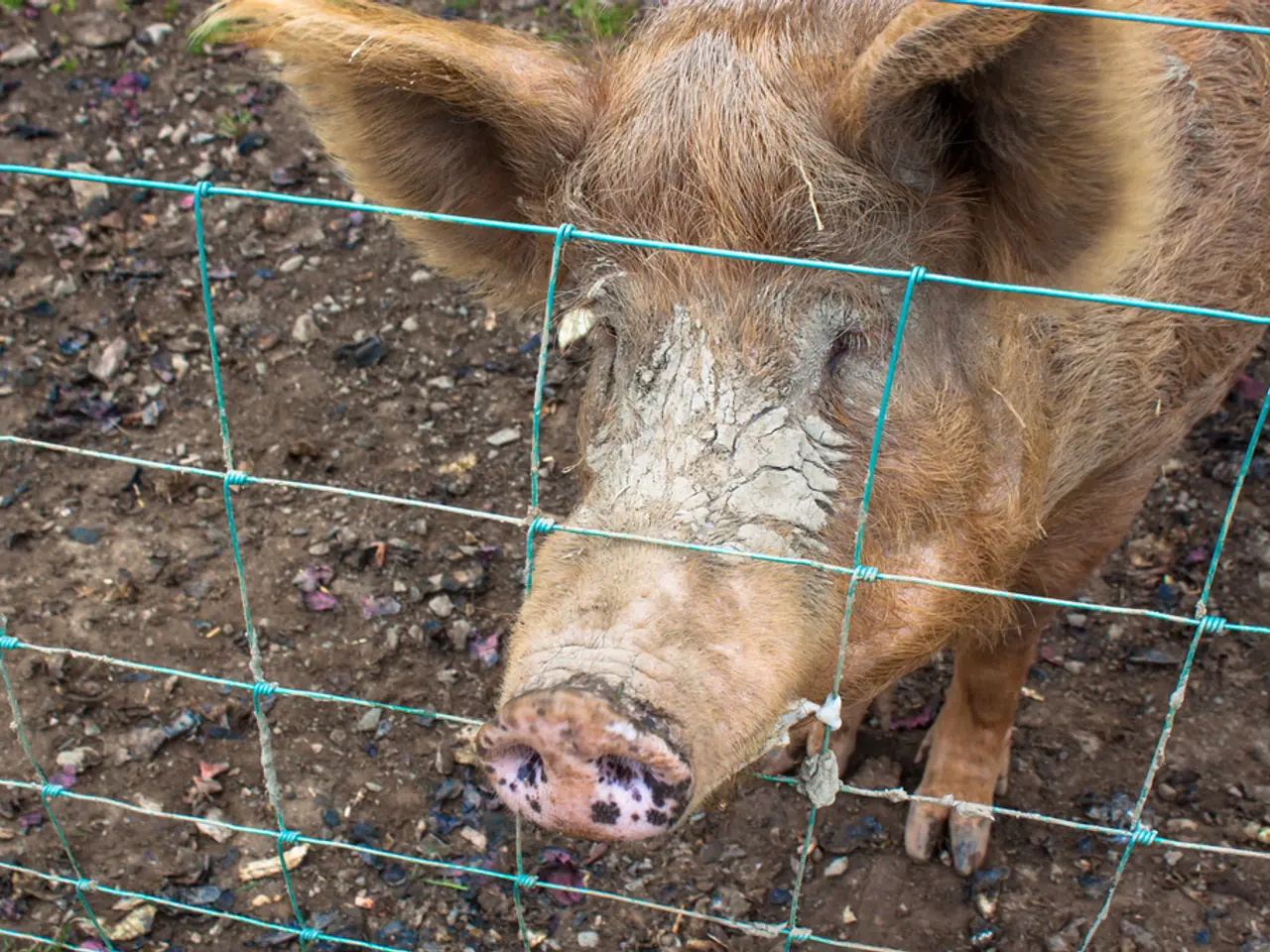Pig fever outbreak in North Rhine-Westphalia: nearly 80 cases, all confined within a designated area
Containing African Swine Fever Outbreak in North Rhine-Westphalia
African Swine Fever (ASF) has recently caused the death of 78 wild boars in North Rhine-Westphalia (NRW), Germany. To prevent further spread, strict measures have been implemented in the affected areas, forming restricted infection zones known as Sperrzone I and II.
These zones, operating under European legislation, encompass stringent biosecurity and containment measures. One of the primary actions has been the installation of protective fencing to limit wild boar movement and contain the virus within the restricted zones, particularly around the districts of Olpe and Siegen-Wittgenstein where most cases have been found. Construction of these fences began about a month ago. In Olpe, 45 kilometers of ASF protective fence have been built, and in Siegen, 25 kilometers.
Surveillance activities are another crucial element in the fight against ASF. Search teams equipped with trained dogs and drones are deployed to detect and remove wild boar carcasses, sources of virus spread, and enhance early detection of infected animals.
Collaboration between states and local authorities is also vital in controlling the spread of ASF. For example, Hesse has strengthened its border protective measures with NRW by erecting permanent and mobile electric fences along roads within a 500-meter corridor to prevent further ASF spread from NRW into Hesse.
Quarantine and transport restrictions for pig farms within and near the restricted zones are also in place to prevent ASF introduction and spread in domestic pig populations. Furthermore, financial aid and compensation programs have been established to support pig farmers affected by ASF-related economic impacts.
Despite these efforts, the NRW Ministry of Agriculture reports that the spread of ASF has been prevented, as all cases have occurred within Sperrzone II. There have been no cases of ASF among domestic pigs in NRW.
The district of Warendorf, home to around 850,000 pigs, is preparing for an emergency response. Volunteers from the THW (Technical Relief Agency) are practicing decontamination exercises with disinfectant solutions. The local CDU district administrator, Olaf Gericke, stressed the importance of such preparations for the district.
In the Sperrzone area, certain restrictions are in place. Citizens are advised not to leave designated paths, and dogs are not allowed to run free. Gates or driving ramps have been installed on the fence installations for forest visitors, hunting permit holders, and the agricultural and forestry sectors.
As of now, there are ten suspected cases of ASF in NRW, in addition to the confirmed cases. The virus is harmless to all other animals and humans. It is important to note that ASF infection is usually fatal for both domestic and wild pigs.
Specific regulations for hunting and forestry are in place in the Sperrzone area. The districts are responsible for measures to combat the animal disease. The number of cases in NRW (wild boar) rose from 47 in mid-July to 92 by late August 2025, but the outbreaks have remained localized within the established infected zones, with no further expansion of Sperrzone I and II reported so far.
In summary, the key elements of ASF control in Sperrzone I and II in NRW involve fencing, surveillance, movement restrictions, coordinated cross-border efforts, and farmer support mechanisms in accordance with European and national regulations to contain and prevent further ASF spread.
The scientific community is closely monitoring the African Swine Fever (ASF) outbreak in North Rhine-Westphalia (NRW), as medical-conditions related to this virus can have significant implications for health-and-wellness. To ensure the virus is contained, stringent biosecurity measures are being enforced within the Sperrzone I and II restricted zones, which include the installation of protective fences and the deployment of surveillance teams.




